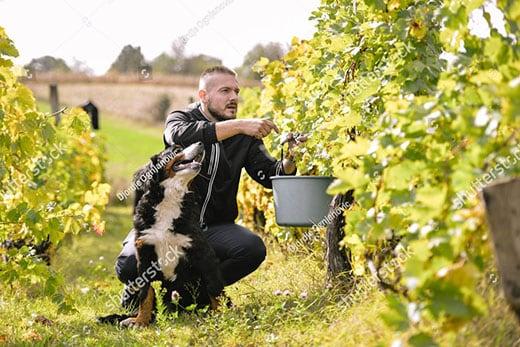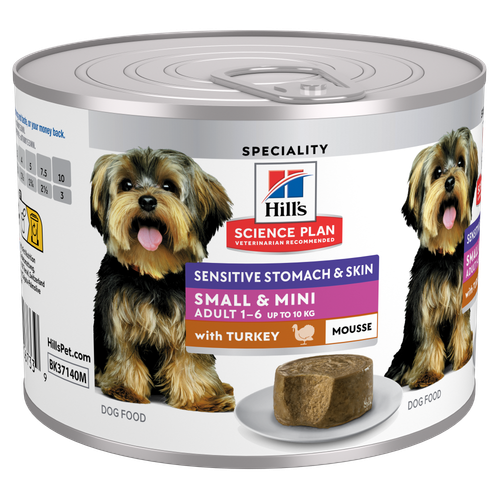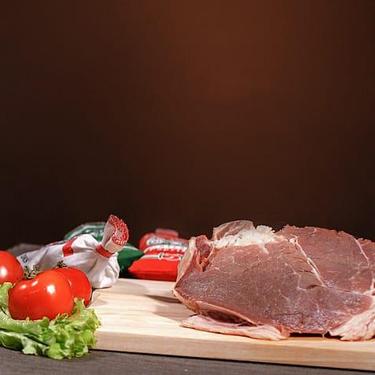
-
Find the right food for your petTake this quiz to see which food may be the best for your furry friend.Find the right food for your petTake this quiz to see which food may be the best for your furry friend.Featured products
 Puppy Food
Puppy FoodHill's Science Plan Puppy Multipack Wet Dog Food with Chicken & Beef are complete premium pet foods for growing puppies from weaning until 1 year old and for pregnant and nursing dogs. Your puppy will love these deliciously smooth and savoury minced loaves, formulated for balanced nutrition and overall health.
Shop Now Adult Wet Dog Food with Beef
Adult Wet Dog Food with BeefHill's Science Plan Adult Multipack Wet Dog Food with Chicken, Beef & Turkey are complete premium pet foods for adult dogs from 1 year. Your dog will love these deliciously smooth and savoury minced loaves, formulated for balanced nutrition and overall health.
Shop Now Mature Adult Dog Food
Mature Adult Dog FoodHill's Science Plan Mature Adult Multipack Wet Dog Food with Chicken & Beef are complete premium pet foods for mature adult dogs from 7 years. Your dog will love these deliciously smooth and savoury minced loaves, formulated to deliver the appropriate amount of energy to support the needs of adult dogs.
Shop NowFeatured products Light Adult Multipack Wet Cat Food with Chicken & Ocean Fish
Light Adult Multipack Wet Cat Food with Chicken & Ocean FishTender chicken chunks in gravy for cats, with L-carnitine and fewer calories for ideal weight management. Packed with high-quality protein, omega-6s, and vitamin E for shiny fur and healthy skin.
Shop Now Mature Adult Wet Cat Food with Chicken
Mature Adult Wet Cat Food with Chicken
Tender chicken chunks in gravy for mature adult cats. Made with easy-to-digest ingredients, high-quality protein for lean muscle maintenance and antioxidant vitamins C+E for optimal health.
Shop Now Adult Multipack Wet Cat Food with Beef, Ocean Fish & Chicken
Adult Multipack Wet Cat Food with Beef, Ocean Fish & ChickenTender chunks in gravy for cats, with high-quality protein to maintain lean muscle. With vitamin E and omega-3s & -6s for healthy skin and balanced minerals to support healthy vital organs.
Shop Now -
Dog
- Dog Tips & Articles
-
Health Category
- Weight
- Food & Environmental Sensitivities
- Urinary
- Digestive
- Joint
- Kidney
-
Life Stage
- Puppy Nutrition
- Adult Nutrition
- Senior Nutrition
Cat- Cat Tips & Articles
-
Health Category
- Weight
- Skin & Food Sensitivities
- Urinary
- Digestive
- Kidney
-
Life Stage
- Kitten Nutrition
- Adult Nutrition
Featured articles The Right Diet For Your Pet
The Right Diet For Your PetIn people, the right diet is very important. If you are eating the wrong way for your metabolism, activity level, age and lifestyle you could end up with health issues.
Read More Show some love with wet foods: a great choice for pets with health issues
Show some love with wet foods: a great choice for pets with health issuesShow some love with wet foods: a great choice for pets with health issues.
Read More The Incredible Science Behind Your Pet's Microbiome
The Incredible Science Behind Your Pet's MicrobiomeLearn what your pet's microbiome is, how it contributes to your pet's gut and overall health, and why nutrition is important in maintaining healthy microbiomes.
Read More -


As a pet parent, you may have heard that grapes are a no-go for your furry friends. And it's true! While grapes are a healthy and delicious snack for humans, grapes and their dehydrated relative, raisins, are off limits for pups. But why are grapes bad for dogs? Learn more about how grapes can harm your furry family members.
Why Are Grapes Bad for Dogs?
According to the Journal of Veterinary Internal Medicine, the primary internal injury in dogs from grapes occurs in the kidneys. In fact, dogs who have snacked on grapes or raisins are at risk of total kidney failure within 48 to 72 hours of eating this forbidden fruit.

It is believed that the darker the colour of the grape, the more likely they are to be toxic. Because of their decreased water content and concentrated remaining ingredients, raisins do pose a considerably heightened risk to dogs. An exact formula of how many grapes per pound of body weight are fatal to dogs has not yet been determined, but as few as four to five grapes were implicated in the death of an 18 lb (8.16 kg) dog, according to Merck Veterinary Manual.
My Dog Ate Grapes: What Symptoms Should I Watch For?
Most affected dogs develop the first signs of toxicity within 6 to 12 hours. Clinical signs that may occur after a dog has eaten grapes include:
- Vomiting
- Diarrhoea
- Extra jittery in the early stages
- Lethargy as time passes
- Anorexia
- Abdominal pain
- Weakness
- Dehydration
- Increased urination in early stages
- Shivering
- Not urinating as the kidneys shut down
All dogs are susceptible to grape and raisin toxicosis — whether they're male or female, neutered or intact, Chihuahuas or Great Danes, puppies or senior dogs. Ingestion of only a few raisins can be deadly, depending on your dog's size and other factors, many of which are not understood. Dogs with compromised kidney conditions are more at risk of grape and raisin toxicity.


Tasty Tips
How Soon Should I Seek Veterinary Care?
Ingestion of grapes or raisins in dogs is an emergency warranting immediate veterinary intervention. If the grape ingestion has occurred within the last hour, your veterinarian will likely attempt to induce vomiting to remove the grapes from their system. If the grape recovery via vomiting is unsuccessful or if several hours have passed since the grapes were ingested, your veterinarian will likely recommend hospitalisation for IV fluids and careful monitoring of kidney values. In most cases, they will recommend keeping them in the hospital through the entirety of the high-risk period (i.e. roughly about 48-72 hours).

Diagnosis often involves history or evidence of ingestion is proof enough of the grape or raisin toxicity. Consistent clinical signs are valuable clues for your vet to gauge the level of damage done. It is important to remember diagnosis may take time and that there are no specific tests to confirm grape or raisin poisoning. Basic blood work and urinary tests are essential to reveal abnormal kidney function.
Prognosis After Grape/Raisin Toxicosis: What to Expect
After your dog is sent home, periodic laboratory tests may be recommended to monitor your dog's kidney function. These tests are non-invasive and typically consist of bloodwork and/or urinary tests. Monitoring may be needed for several weeks, as it can take time for kidney function to return to normal.
Dogs that show no clinical signs may have a great prognosis if they're treated early. However, the prognosis may be uncertain if there is a delay in treatment or if there's a possibility for kidney failure. It may often take several days or weeks for kidney function to return to normal; however, in some cases, kidney function may never recover. Thankfully, many dogs can live healthy happy lives even with decreased kidney function, with a modification of food and supplements added to their daily routine. If your veterinarian diagnoses decreased kidney function in your dog, be sure to ask them about potential therapeutic dog foods that help with kidney support.


Dr. Laci Schaible is a small animal veterinarian, veterinary journalist, and a thought leader in the industry. She received her Doctor of Veterinary Medicine from Texas A&M University and her Masters in Legal Studies from Wake Forest University.
Related products

Hill's Science Plan Adult Small & Mini Dog Food with Turkey is a complete premium pet food for adult small dogs from 1 year old that are prone to weight gain or slightly overweight. This deliciously smooth mousse is formulated to deliver the appropriate amount of energy to support weight maintenance in adult dogs.

Hill's Science Plan Sensitive Stomach & Skin Adult Wet Dog Food with Chicken is a complete premium dog food for adult dogs from 1 year. This savoury tinned loaf is enriched with ingredients that support digestive health & skin care.

Hill's Science Plan Sensitive Stomach and Skin Small & Mini Adult Dog Food with Turkey is a complete premium pet food for small breed adult dogs aged 1–6 years. This deliciously soft mousse is enriched with ingredients that support digestive health & skin care.

Hill's Science Plan Perfect Digestion Small & Mini Adult Dog Food with Turkey is a complete premium pet food for small breed adult dogs aged 1–6 years. This deliciously smooth mousse is precisely balanced to deliver the appropriate amount of energy and to support digestive health in adult, small breed dogs.
Related articles

Learn effective tips for feeding a dog that's a picky eater and ensure proper nutrition for a finicky eater. Discover tips for pet parents at Hill's Pet UK.

How, when and what to feed your new puppy is an important decision, learn more about the things to consider for feeding your puppy.

Many human foods are dangerous to dogs. Read about 5 of the worst toxic food offenders that can kill your dog - and how much it takes to hurt them.

Learn about the potential health risks of a raw diet for dogs and why they aren't the best option for your pup or you.

Put your dog on a diet without them knowing
Our low calorie formula helps you control your dog's weight. It's packed with high-quality protein for building lean muscles, and made with purposeful ingredients for a flavourful, nutritious meal. Clinically proven antioxidants, Vitamin C+E, help promote a healthy immune system.
Put your dog on a diet without them knowing
Our low calorie formula helps you control your dog's weight. It's packed with high-quality protein for building lean muscles, and made with purposeful ingredients for a flavourful, nutritious meal. Clinically proven antioxidants, Vitamin C+E, help promote a healthy immune system.

